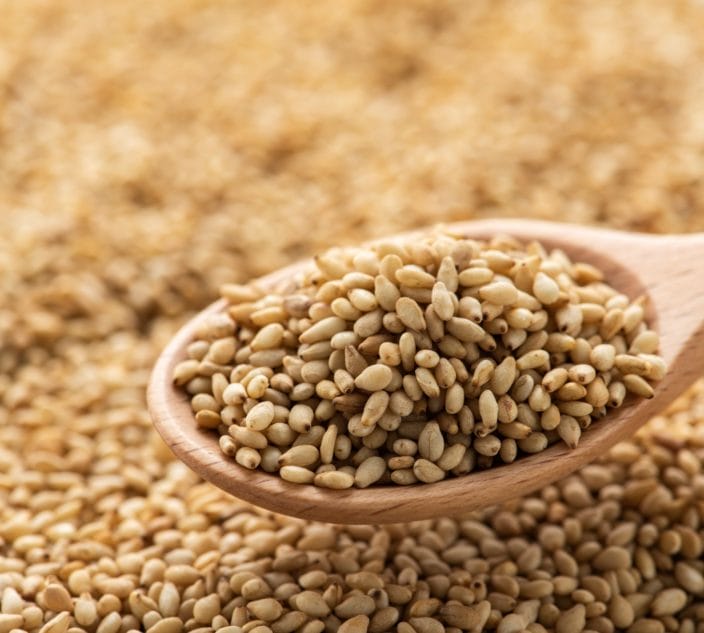
Trigger warning: this opinion article references three recent food allergy tragedies. Post may not be suitable for some, including children.
ON the last Saturday of January 2023, my son spent the day getting ready for his high school winter formal. There was the last-minute rush to find a mint green tie to match his date’s dress, and a cranky but sympathetic florist who agreed to make a coordinating corsage that same morning.
Parents and kids gathered in a park overlooking the ocean in Orange County, California, to take pictures. Then students headed off in a party bus to the dance. I felt safe knowing that they were being driven, and not headed for the freeways in packed cars with stereos blasting.
A few miles away, in a town not far from mine, another set of parents waved goodbye to their daughter, who was also headed to her high school’s winter formal. Liza and Jake West probably felt much like I did – happy that their child was with their friends, hugging, posing, talking, laughing.
Within hours, their beloved daughter, Alyssa “Aly” West, was in the hospital, on life support. She had suffered a severe allergic reaction to a bite of a brownie that contained nuts. Aly – cheer captain, dancer, Model United Nations debater – died four days later, surrounded by her devastated family.
As the mother of a teenager with multiple, severe food allergies, when I heard about Aly’s death, I went into my bedroom, shut the door, and cried. I know I wasn’t the only one.
The start of 2023 has been excruciating for the food allergy community.
Allergy Tragedies’ Terrible Toll
On January 9, Kierstin Hedin, a young woman in her 20s, suffered severe anaphylaxis due to a food allergen. Her mom said her daughter experienced a “cascade of devastating complications,” and despite excellent medical care, died a few days later. On social media, her mom described her as a “precious, kind, funny, beautiful soul.” Her father shared some of the most gut-wrenching words ever written: “My new path is grief, it engulfs me. I would gladly give my life for another day with my beloved Kierstin.”

Then on January 19, Emerson Kate Cole, age 10, of Amarillo, Texas, died following a severe anaphylactic reaction to her lunch she ate at school two days earlier. Her grieving dad shared on Facebook that he and Emerson’s mother had donated her organs, an incredible act of generosity in a time of unfathomable pain. “I miss the sound of your footsteps from upstairs, I miss all the messes you made, your quick wit and sense of humor, your forgiving heart, your giggle, your ability to shift my answers from no to yes instantly!” he wrote.
Three deaths, in the span of three weeks. Kierstin. Emerson. Aly. Beautiful, promising young people who were everything to their loved ones. Their photographs on social media are radiant. Joyful. They were strong and healthy. Cherished.
As a parent who has spent many years living in fear of an errant brownie, a mislabeled package, or a hidden allergen in a restaurant meal, I grieve for these parents, and the three young people who have left this realm too soon.
Allergy Tragedies Bring Mistakes to Mind
For many allergy parents, these tragic losses make all too real the worry we carry, always. It reminds us of the stakes. And yes, it shakes our confidence in our ability to keep our child safe.
I’m both an allergy mom and a journalist who has reported on food allergies for many years. I know that science suggests anaphylaxis so severe as to be fatal is not common – and yet. When it happens, it haunts.
The food allergy tragedies make me think about the mistakes I’ve made.
I read labels. I ask questions. We have walked out of restaurants simply on a gut feeling that we can’t trust them. I carry, like, four sets of auto-injectors on airplanes.
I know the power of an epinephrine auto-injector, given without delay, to halt anaphylaxis. I have heard, and shared, this message countless times.
And yet.
There was the time when my older son was a toddler and we were just learning about all of the surprising places where you could find allergens hidden in food. I never thought to check the label on turkey meat. If I had, I would have seen that it contained dairy. A scary reaction followed.
There was the time that despite obsessive label reading, I somehow overlooked dairy in the ingredients of a frozen dessert. I was so excited that we had found a new treat my son, then 8, could eat! He took a small bite, realized something wasn’t right and spit it out. Within moments, his mouth tingled. His eyes watered. His stomach cramped.
I panicked. Instead of using the auto-injector, I gave him an antihistamine and called our allergist. This time, his symptoms subsided.
There was also that time on vacation Hawaii, where the tropical breezes and salt water left us so relaxed that we let our guard down, just for one meal. My son, now 12, ordered what I thought was a simple grilled chicken. As he was about eat it, I asked the waitress, “This doesn’t have nuts in it, right?” My heart dropped when she said the chicken was marinated in peanut butter.
Now in his late teens, my son has completed oral immunotherapy for many of his allergens. This has helped to relieve much of our daily stress. But as his memory of reactions fades, the auto-injectors sometimes get left at home. Or left in the wrong backpack or the pocket of a pair of jeans headed for the wash.
In disaster planning, it’s well-known that it’s difficult to maintain a state of readiness for infrequent events. Complacency can seep in. So it goes with food allergies.
Allergy Parents, Kids Can’t Do It Alone
If you have yet to make any these mistakes, you are amazing. But give it time. Managing food allergies is a lot different with a teen than a toddler. For teens, their world is opening up. It’s what we want for them. Their sense of invincibility is what helps teens to try new things. It fuels their independence and helps them to find their way in the world. It’s also what makes the teenage years terrifying.
The simple fact is – to prevent more food allergy deaths, we cannot expect the responsibility for managing food allergies to be carried solely by the child, or their parents.
When my son was diagnosed with over a dozen food allergies, we were sent home with prescription for epinephrine auto-injectors and told to practice strict avoidance. There was no training, no helpful advice on navigating the world, and certainly no support in actually doing it.
That is not good enough. Parents and children with food allergies need training on what to do when a reaction strikes. Emergency responders and other medical professionals use simulated emergency scenarios to train them to rapidly assess symptoms and act under pressure.
Yet we expect families to be able to respond similarly, with little or no preparation. Our families would benefit from training similar to what emergency responders receive.
Families aren’t the only ones. We need many more people in our schools and out in our communities to be ready to use an auto-injector. Recently, Senator Dick Durbin (D-IL) and Senator Tammy Duckworth (D-IL) introduced the Protecting Children with Food Allergies Act, which would require school food personnel to complete food allergy training. That would be a step in the right direction to protecting our kids.
Response, Research and Resolve
We must also make stock epinephrine readily available, in more places – in all schools, and on all airplanes. It’s so easy to leave an auto-injector at home, to misplace it, to let the prescription lapse, to accidentally leave it baking in a hot car and ruin it. Some can’t afford one. Some teens feel embarrassed to carry an auto-injector, so they don’t.
And we need emergency responders, of all types, to carry epinephrine. When someone calls 911, police often get to the scene first. It’s why police in many jurisdictions carry automated external defibrillators (AEDs) to save lives from sudden cardiac arrest. The state of New York also permits police to carry auto-injectors. We need more of this.
At a minimum, we need all ambulances to be stocked with epinephrine, and staffed by responders trained and empowered to administer it. Shockingly, many states either don’t require ambulances to carry epinephrine or restrict which responders are authorized to give it.
We of course also need more research into the prevention and treatment of food allergies, and better, more accurate labeling from food manufacturers so we know what is actually in the food we’re eating. Help us help our kids.
At Allergic Living, we know the entire allergy community sends our deepest condolences to the families of the three young people who were lost so tragically this January. We grieve with you, and we will continue to strive to make the world a safer place for people with severe food allergies.
Related Reading:
Mom of Emerson Cole Sues School District Over Allergy Tragedy
All About Epinephrine: What It Does, Why Not to Delay, Giving 2nd Dose
Why We Need Certified Allergy Nurse Educators
After Cheerleader’s Fatal Reaction, Family Launches Foundation
How to Read a Food Label for Allergens





